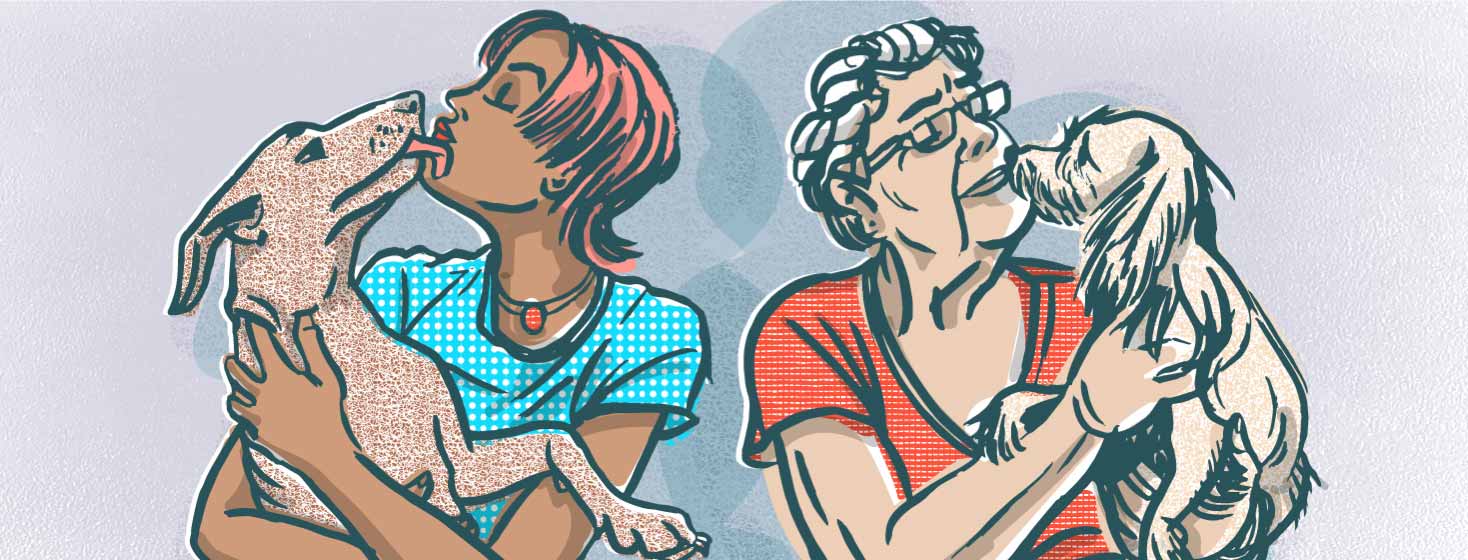Short Hair Vs Long Hair Dogs For Asthmatics - Does It Make A Difference?
The subject of asthmatics and pets has been discussed in doctors' offices and heavily searched online for years. Even though the presence of pets in the home can trigger asthma and allergy symptoms, many asthmatics still wonder if they can successfully enjoy having dogs, cats, and other animals without having severe health consequences.1
It’s estimated that there are about 78 million dogs owned in the United States. Of course, many of these dogs are owned by people who have different severities of asthma and allergies. One question that often comes up when asthmatics are researching dog breeds is whether short-haired or long-haired dogs are better for managing allergy and asthma symptoms. Does it make a difference?2
Are short hair or long hair dogs better for asthma?
It’s a common assumption that asthma and allergies are triggered by pet hair itself since its presence around the home can cause itching and watering eyes and nose, sneezing, coughing, and wheezing. More severe reactions can even lead to the airways closing. As a result, it’s also a common assumption that short-haired dogs may be best since there’s less hair present around the house.3
In reality, it’s the proteins found in pet saliva and dead skin cells, or dander, that can be attached to the hair - not the hair itself - that triggers asthma and allergy symptoms. So regardless of whether pet hair is long or short, there will still be dander and saliva proteins attached to that hair. What will matter more is whether the dog sheds their hair or does not shed at all, as that can have a greater effect on the number of allergens being spread around the home.3
Hypoallergenic breeds are considered to be some of the best solutions for asthmatics who want pets. However, it’s important to keep in mind that every pet gives off dander, regardless of whether it has long hair, short hair, curly hair, or even no hair at all!
Consider the cleaning
When you’ve got asthma and/or allergies and you make the choice to share your home with a pet, maintaining a clean house is key. Even though you can’t contain the number of allergens your pet is spreading, getting into the habit of a thorough cleaning routine can help keep your space fresh, breathable, and free from fur and dander.
Whether your new furry friend has short hair or long hair may also factor into how much cleaning you want to do. If big tumbleweeds of Alaskan Husky fur drifting across your living room floor don’t sound super appealing, a breed with shorter and less visible hair may be the right choice.
In addition to keeping dander and animal proteins under control, regularly dusting, mopping, and vacuuming can also control the dust mite population in your home.
How I manage life with my short-haired shedder
I asked myself the short hair vs long hair question when considering adopting a dog five years ago. I grew up with a poodle that gave off minimal dander, but I’ve always loved big dogs and wanted to be able to live with the breed of my choice without sacrificing my health.
I adopted a Bullmastiff/Rhodesian Ridgeback mix that sheds small red hairs all over my house. Every time she shakes, you can see all of the hair flying off of her in every direction. It took a little bit of time to find the right combination of allergy medicine and inhalers to combat the dander level, but those plus a weekly cleaning regimen make it possible for me to live a happy, symptom-free life with my short-haired shedder.

Join the conversation